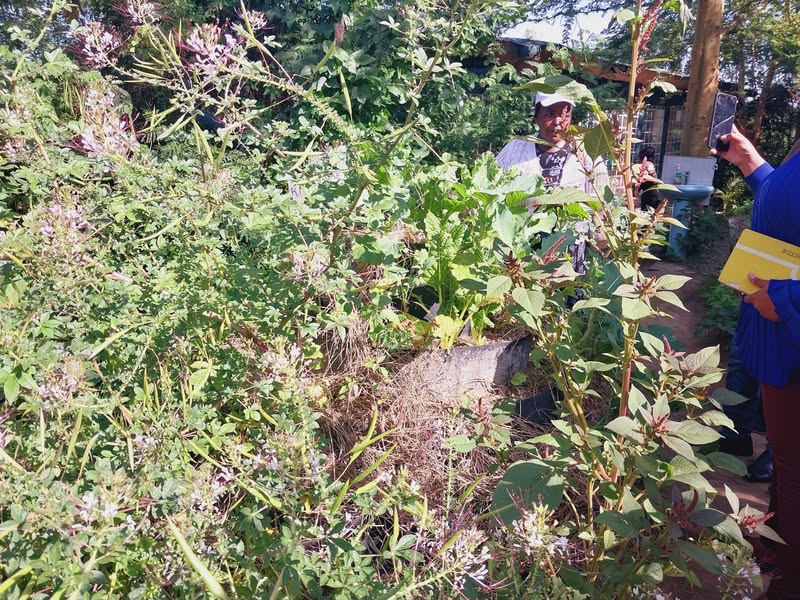
Kenyan farmers are optimistic as the hearing of a court case in which they are challenging restrictive seed laws which they claim threaten their rights to save, share, and sell indigenous seeds nears.
The case slated for hearing on May 20, 2025, at the Machakos High Court is of great public interest.
The ongoing litigation was filed by 15 Kenyan farmers (plaintiffs) at the High Court in Machakos, Constitutional and Human Rights Division, in July 2022.
Several legal briefs and affidavits have been submitted by petitioners, interested parties, alongside KEPHIS and the Attorney General, both who are the respondents in the suit.
The initial hearing, previously scheduled for early 2024, was postponed following procedural delays and pending supplementary affidavits.
The farmers argue that the Seed and Plant Varieties Act criminalizes traditional seed-saving and sharing thereby posing a direct threat to food security, indigenous knowledge, and rural livelihoods.
The case, according to them, is a pivotal moment for food sovereignty, biodiversity, and smallholder farmers’ livelihoods in Kenya and beyond.
The litigation challenges the constitutionality of the Seed and Plant Varieties Act (Cap. 326) of 2012 and the Seeds and Plant Varieties (Seeds) Regulations, 2016.
The Petition is spearheaded by 15 smallholder farmers and supported by Greenpeace Africa and BIBA Kenya as interested parties.
At the heart of the case is the demand for legal recognition and protection of Farmer Managed Seed Systems (FMSS) and the restoration of farmers' fundamental rights.
The Seed and Plant Varieties Act (SPVA) was first enacted in 1972 to regulate the seed sector in Kenya. It focused on the registration, certification, and marketing of seeds.
In 2012 and 2016, significant amendments were introduced to align Kenya's laws with the 1991 International Convention for the Protection of New Varieties of Plants (UPOV 1991).
These changes, according to the petitioners, reinforced intellectual property protections for commercial breeders, introduced stricter certification requirements, and expanded the regulatory authority of KEPHIS.
The petition challenges the SPVA and associated regulations on multiple constitutional grounds which include; Article 11(3)(b) – Failure to recognize and protect indigenous seed systems and cultural heritage, Article 2(6) – Contravention of international treaties ratified by Kenya (ITPGRFA and UNDROP), Article 43(1)(c) – Violation of the right to adequate food and freedom from hunger and Article 27 – Discrimination against smallholder farmers by privileging corporate breeders.
Other articles being challenged by the petition are; Article 40 – Infringement of the right to property by criminalizing community seed sharing, Article 31 – Violation of the right to privacy through unreasonable inspections and seizures, Article 47 – Denial of fair administrative action in enforcement procedures alongside Article 10 & 118 – Lack of public participation in the 2016 amendments.
The punitive closes in the Act according to the petitioners are; mandatory certification of all seeds including traditional and farmer-developed varieties, prohibition of seed sharing or selling unless registered and certified by KEPHIS, Penal consequences including fines and imprisonment for non-compliance and empowerment of inspectors to search, seize, and destroy seeds without adequate safeguards.
There are also claims that the Act undermines seed sovereignty, the right to culture and knowledge transmission.
It also criminalizes the exchange of seeds — a practice central to community resilience and survival, forces farmers into a formal seed system that is expensive, exclusive, and unsuitable for diverse indigenous varieties and erodes community autonomy over food systems, threatening food security and ecological balance.
The Government, through KEPHIS, however, argues that the Act protects farmers by ensuring seed quality.
What Greenpeace and petitioners have vehemently objected to, arguing that quality can’t only be defined through industrial standards. “FMSS ensures resilience, climate adaptation, and local food security.”
KEPHIS also argues that farmers can save seeds for personal use. An argument Greenpeace and petitioners object stating “This right is meaningless if farmers cannot exchange or sell seeds—practices central to community survival.”
KEPHIS argues that the regulation prevents the spread of disease, while Greenpeace and petitioners believe that disease spreads through multiple
vectors, not just seed sharing. “Community protocols and education can manage
risk without criminalization,” petitioners say.
KEPHIS says the Act includes indigenous seeds under its definition, while Greenpeace and petitioners maintain that inclusion without tailored protection leads to erasure, not recognition. The latter argues that there's no dedicated framework for indigenous seeds in the law.
The petitioners claim that the government has framed the SPVA as a tool for agricultural modernisation and phytosanitary security.
However, this narrative conceals the structural bias against smallholder farmers and contradicts Kenya’s constitutional obligations and international commitments.
They believe that the urgency should be in protecting biodiversity, food justice, and the custodianship of seeds by those who feed the nation, its farmers.
Kenyan farmers are now optimistic that they will emerge victorious in their legal suit.















